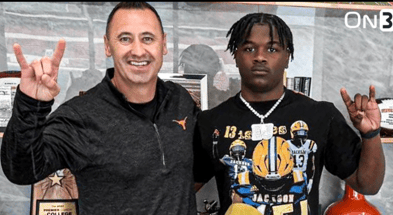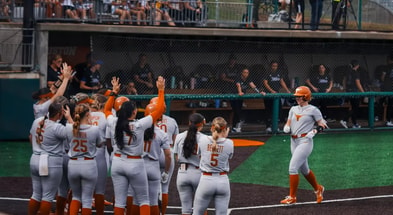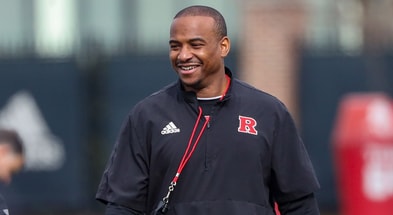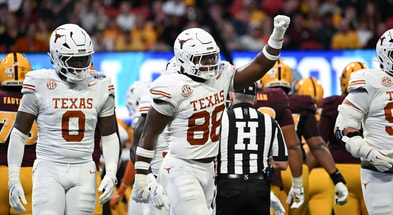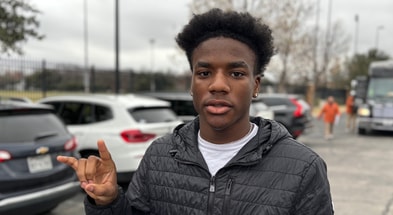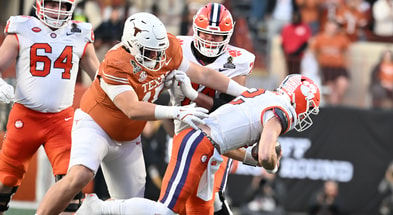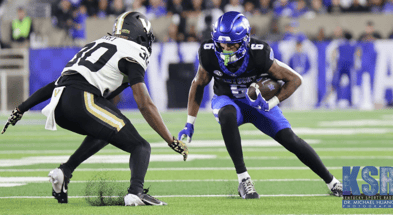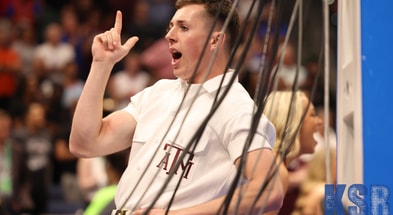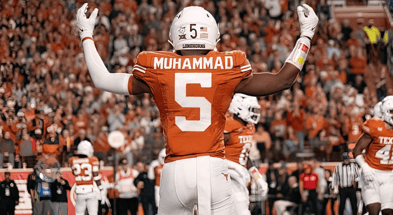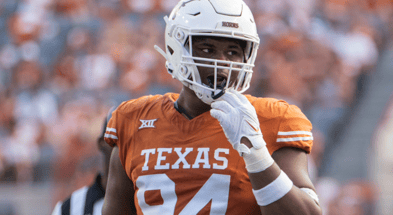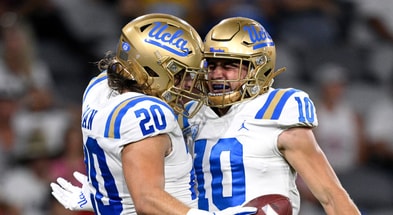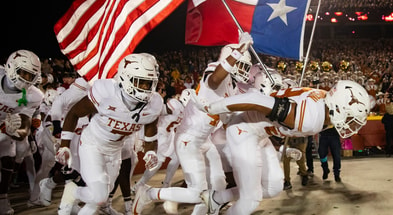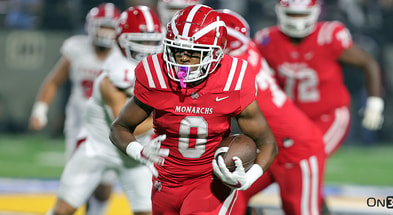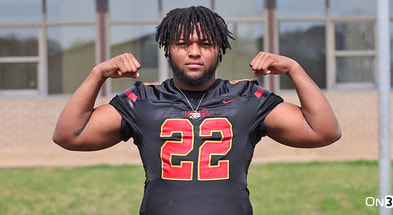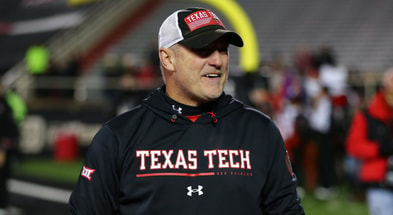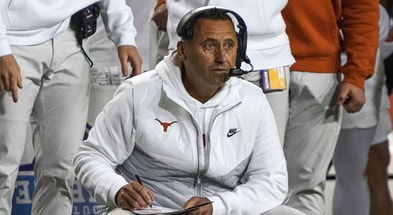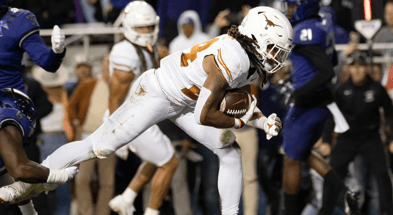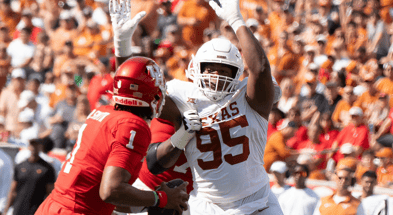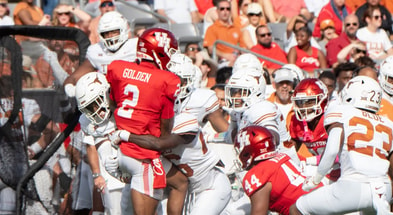Texas Tech fires Matt Wells

Reported first by Mac Engel of the Fort Worth-Star Telegram:
With this coming soon after…
The speed of the move suggests Texas Tech has been ready to make this move and was simply waiting for the right moment. Blowing the 24-10 lead at home to Kansas State and being all but officially knocked out of the Big 12 title race was clearly a better moment than say, a week ago when they beat Kansas.
Summarizing the Wells era in Lubbock
I always follow Big 12 coaching hires pretty closely and certainly studied up on Wells when Kirby Hocutt hired him from Utah State.
[Subscribe to Inside Texas and get 50% off an annual or monthly membership!]
Wells was an offensive coordinator out there under Gary Andersen before Wisconsin hired him (Andersen) and Wells was promoted to head coach. He’d learned, or would subsequently learn, the Gary Andersen defensive scheme which was bolstered in 2012 (the year before Wells took over) by Dave Aranda.
This defensive scheme served Wells decently well out there, as did recruiting locally in Utah and the surrounding area while bringing in second chance transfer talent to upgrade the roster. But they were faltering until he hired David Yost, a spread offense guru who’d worked with Gary Pinkel for a while in Missouri before adding some additional knowledge working with Mike Leach at Washington State.
Yost brought an 11 personnel uptempo spread which allowed Utah State to take off and helped turn Jordan Love into an NFL prospect, then Hocutt hired Wells.
When Tech was unable to field a Love in years one and two, while getting absolutely gashed trying to apply a pressure-oriented defensive scheme, Yost took the blame and was fired. They brought in Sonny Cumbie to replace him, who was getting pushed out of TCU. Naturally this didn’t solve their defensive issues and here we are, this time Wells took the blame.
What’s next?
Last year there were heavy rumors, mentioned here, suggesting people around Texas Tech were eager to bring in Art Briles to help solve the issues out in Lubbock.
The issue, in Moneyball terms, is how to build a competitive roster in the modern landscape way out in West Texas when all of the talent is on the I-35 corridor where there are two resource-rich competitors in TCU and Baylor.
Matt Wells’ plan was to do it by snatching up LOADS of transfers every single year. Eight transfers in 2019, nine in 2020, and 11 in 2021. It wasn’t really working, in part because the schemes weren’t really there and in part because it’s really hard to turn over your roster in that fashion and play winning, team defense. At Utah State they’d always have a squad of locals filling out multiple positions who’d been developed within the culture, but they didn’t inherit that at Lubbock and were too far behind the 8-ball to real build it.
Using the transfer portal will still make a lot of sense for the next head coach, but the scheme part has to be there on defense as well. You can’t run a 3-3-5 with no pass-rushers on the defensive line in this league, that dog won’t hunt.
Here are some of the commonly mentioned options for the next hire:
Jeff Traylor (UTSA)
Pros: Traylor is a good football coach with background in teaching and scheming on both sides of the ball thanks to a long career as a Texas HS coach out in Gilmer (East Texas). He’s a great recruiter, has quickly built a fantastic culture at UTSA, and is connected with fantastic O-line coach Matt Mattox. He’s beloved in San Antonio and to some extent in Austin.
Cons: Traylor is in a pretty good position at UTSA and could sit things out waiting for a different job opportunity.
Sonny Dykes (SMU)
Pros: Dykes has built a pretty good program at SMU, they use the transfer portal well, they hire well on both sides of the ball (particularly offense), and they don’t just totally neglect defense. He’s also familiar, having worked there before with Mike Leach.
Top 10
- 1New
Baseball Top 25 projection
Massive Top 10 shakeup
- 2Hot
Shedeur Sanders prank
Son of NFL DC admits guilt, apologizes
- 3
Falcons release statement
Involvement of DC in Sanders prank
- 4Trending
Jalen Milroe warns
Teams that passed on him
- 5
Tyler Warren pranked
Tied to Shedeur Sanders call
Get the On3 Top 10 to your inbox every morning
By clicking "Subscribe to Newsletter", I agree to On3's Privacy Notice, Terms, and use of my personal information described therein.
Cons: Dykes is pretty comfortable at SMU and recruiting better there than Tech has done recently.
Kendal Briles (Arkansas OC)
Pros: He’s not Art Briles but still runs the same offense. Arkansas has certainly been effective this year in the second year of the system
Cons: He’s Art Briles’ son, has never been a head coach, was part of the collapsing FSU program with Willie Taggart, wasn’t fully trusted by Lane Kiffin back at FAU (Kiffin took over play-calling early in the year). Has very little experience overseeing defense.
Jeff Lebby (Ole Miss OC)
Pros: Runs a fantastic RPO spread offense, under Lane Kiffin’s direction, and has worked with Art Briles, then Josh Heupel (running the same system), and now Kiffin. Makes more money currently than Briles and may simply be a better version of the same thing, RPO spread wunderkind but who did it without a famous last name.
Cons: Similar lack of expertise in building a defense or hiring a defensive staff as Kendal. Also, does Texas Tech need a great offensive coach? They already had one of those in Kliff Kingsbury and did a lot of nothing.
Ian’s suggestion for Texas Tech
I’m going to tell Tech the same thing I told Baylor before they ultimately hired Matt Rhule. What do you need to win here?
The advantages to being out in West Texas are basically as follows:
- You’re soaked in oil money.
- The West Texas HS game is decently stocked with explosive, RPO spread offenses and a solid handful of hard-nosed kids on either side of the ball. Not enough to contend with kids from the bigger population centers, but there is talent which would enjoy a Tech offer.
- That’s about it. You can be a transfer destination for kids looking to get serious about their remaining years of eligibility but you’ll struggle with recruiting unless there’s something to sell in terms of winning and high level play.
The challenge out in Lubbock for years has been an inability to play defense. People only thought Mike Leach was offensively-driven, he actually had some solid defensive units in his day. The 2008 unit was coached very intelligently by Ruffin McNeal and had some great games.
Texas Tech is going to have to rebuild their defense with whatever has been left behind by Wells, which doesn’t appear to be much, particularly considering how many of their starters are transfers running out their eligibility.
The temptation will be to hire a hotshot offensive coach, but I’d try to get a guy with a proven record of building a culture, overall program, and a defense. Even if he hasn’t had big time success at a higher level. Think more Lance Leipold and Chris Klieman. Traylor would be perfect, if he’s interested.
Who would you hire? Discuss for free on the Flyover Football board.




